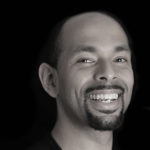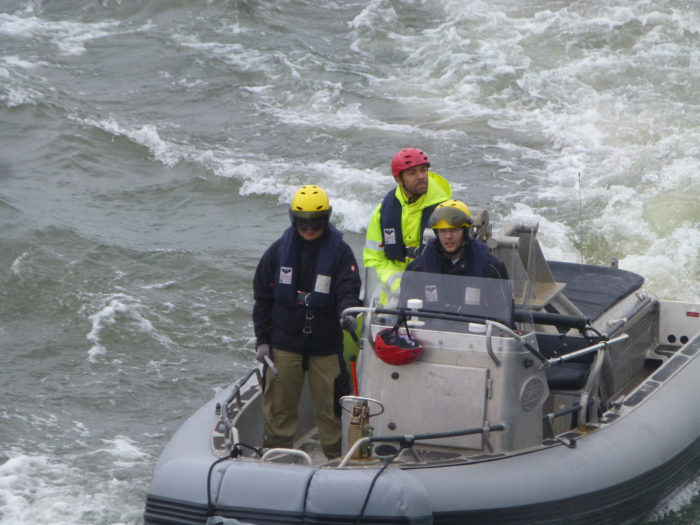
CHOW Chat: Leonard Pace on Expanding Ocean Understanding

The Capitol Hill Ocean Week 2022 program will recognize the 50 years of progress achieved in ocean and coastal conservation and set a course for the new policies and actions necessary to sustain our waters and transform our future. Leonard Pace is a member of the 2022 CHOW Advisory Committee, and an experienced marine biologist who manages Schmidt Ocean Institute’s annual collaboration proposals and related community coordination and outreach activities. He also manages special projects and liaising with the scientific community. We spoke with Leonard about his role on the Advisory Committee, his hopes for this year’s conference, and his vision for the next 50 years of ocean and coastal conservation. Register today at CapitolHillOceanWeek.org!
How have you hoped to shape this year’s Capitol Hill Ocean Week through your role on the Advisory Committee?
I had the opportunity to participate in last year’s CHOW which was dedicated to working towards equity in ocean science and policy and in serving on this year’s Advisory Committee, it was important to me that that message be carried forward. Since this year’s CHOW will have retrospective and forward-looking components, it will be an ideal platform to ensure that the perspectives of those communities that haven’t traditionally been well represented in the ocean sciences are recognized and provide the chance to share their knowledge and priorities moving forward. I am also pleased to have been able to significantly contribute to the crafting of the session on Expanding Ocean Understanding. I believe that it will be a great intersection of future work in ocean science and the inclusion of numerous communities from around the nation and the world.
What are you most looking forward to during Capitol Hill Ocean Week 2022?
With CHOW having an in-person and virtual format this year and I am excited to have the opportunity to return to the Ronald Reagan Building and have face-to-face dialogue with colleagues! The virtual sessions should have a large audience and provide a means for those who cannot travel to be fully engaged. I think the combined formats will encourage an enriching and meaningful meeting and I am excited to participate in the sessions.
The theme of this year’s conference is Sea: The Future. What do you envision for the next 50 years of ocean and coastal conservation? What do you hope the ocean conservation community will be able to accomplish?
The need for humanity’s understanding and preservation of the world ocean will only grow as anthropogenic impacts continue to mount and disrupt our environment. National and international efforts are working towards increased awareness, research, and activism. I believe that between the work being done by the local community and the everyday effects of things like rising temperatures, increased storms, and sea-level rise, for example, impacting more and more citizens, the next 50 years will see a unified global response and change. We still have time to make changes that reduce the worst-case scenarios and I believe that the scientific community’s efforts combined with the growing public awareness problems being faced, will result in increased awareness and a global positive response. In the coming decades, I hope ocean conservation becomes an outdated need as humanity will have progressed to balance its resource needs with the needs of Earth, both terrestrial and aquatic. I believe the human will to find harmony with our environment exists. I hope our technological developments and increased understanding of our world provide us with the ability to steward its habitats and provide humanity with the sustainable resources it needs.
What are some ways we can improve communication between scientists and policymakers?
There are times when a lack of trust exists between the science and political communities that may stem from the transactional relationship that often develops between the groups. Individuals in the respective groups rarely, if ever, connect with one another when one isn’t seeking funds, expert input, or some other value. If, for example, policymakers were invited to scientific proceedings or university lectures in their districts that were simply interesting or relevant to their constituencies, then a dialogue could be had where participants simply aim to talk and build relationships. Of course, this could also be done in reverse where members of the science community attend town halls or other events simply to engage and share information. I believe that building connections without the weight of expectations would allow for both communities to be better positioned to know whom they can speak to when they do need something and already have a relationship with those individuals.
In your opinion, what will be some of the most important research priorities to support ocean and coastal conservation in the next few decades?
The Nippon Foundation-GEBCO Seabed 2030 Project to map 100% of the ocean floor by the end of this decade. Seafloor bathymetry information is fundamental and will be critical to our understanding of the ocean. I believe the effort to reach the project’s goal will continue to uncover many new habitats and species, as it already has since it began.
Another research priority is the maturation of programs seeking to put instruments into the ocean to collect long- and short-term datasets on an increasing number of parameters that will support ocean and coastal conservation. Extending from the programs collecting the data to those that seek to translate the data into knowledge, will yield a better understanding of the complex dynamics of many ocean processes that will have a profound impact on conservation in the future.
How can we improve accessibility in ocean sciences and engagement with underrepresented communities?
For CHOW or any other organization seeking to improve their efforts and engagement with underrepresented communities, the first step is to meet those groups where they are, with an open mind as to what the engagement will look like. Often preconceived expectations regarding what an organization should or would bring to help, are borne from an uninformed belief of what the community needs, and can easily be avoided by beginning a collaboration with a general introduction with the goal of simply learning and sharing interests and priorities. Developing this relationship with a clear understanding of the goals of both parties is as important as maintaining the collaboration and continuing to accomplish mutual goals to promote the long-term evolution of the effort. Improvements to the established ocean science culture require sustained effort and a willingness from organizations looking to make contributions to this work to be ready to provide multi-year support.

Photo credit: Leonard Pace/Schmidt Ocean Institute
